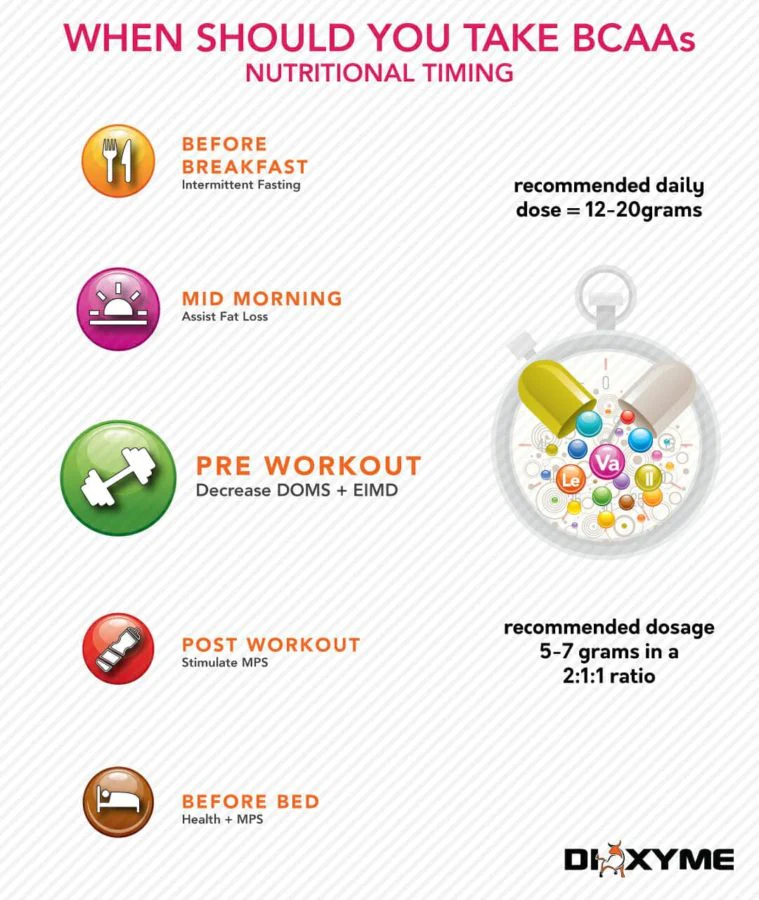5 Benefits of BCAAs for Runners: When and How to Take Them
As running continues to gain in popularity as a form of exercise, many athletes are looking for ways to optimize their performance and recovery with BCAAs for runners. While BCAAs have traditionally been recommended for bodybuilders, more runners are learning how to use them properly for maximum benefit.
In this blog post, we’ll explore why BBCAs can be so beneficial for runners and how they can help you reach your goals faster. Read on to learn how you can incorporate the best BCAA for runners into your training regime.
What are the benefits of BCAAs for runners?
BCAAs are essential amino acids that help support muscle growth, endurance, and recovery in runners. Taking BCAAs before or after a run can reduce post-workout soreness, increase resistance to fatigue, and provide an energy boost for longer runs.
What Are BCAAs?
Branched-chain amino acids (BCAAs) are a group of essential amino acids that have unique properties such as the ability to be oxidized directly in the muscles, which makes them not only building blocks for muscles, but also a source of energy during prolonged exercise. They also play an important role in muscle repair and growth after exercise. But are BCAAs good for runners?
As it turns out, they are essential for runners and other athletes looking to maximize muscle growth, endurance, and recovery. BCAAs can enhance endurance capacity, reduce fatigue, improve recovery following muscle damage and increased muscle mass by activating muscle protein synthesis.
Supplementing with BCAAs can also help reduce fatigue levels during a run since they provide the body with additional energy by converting into glucose when needed and directly oxidized in the muscles. BCAAs can inhibit the production of cortisol, which is likely due to the extra energy these amino acids deliver to the muscles, which reduces the need to break down glycogen stores, reduces cortisol production and increases time to exhaustion.
Additionally, BCAAs may help preserve muscle tissue in runners on a hypocaloric diet which helps to maintain lean mass and preserve skeletal muscle performance while losing fat mass.

Is It Possible to Get BCAAs from Food?
Certain foods contain adequate amounts of BCAAs. Foods such as poultry, salmon, eggs, tuna, tofu, and legumes are all high-quality sources of BCAA amino acids leucine, valine, and isoleucine.
Dairy foods like milk and cheese also provide a good amount of BCAAs, while nuts, seeds, and soy products like tofu or tempeh are excellent vegan sources for plant-based proteins. High levels of leucine can also be found in beef, lamb, poultry, cheese, peanuts, brown rice, corn, and quinoa.
Most athletes who get enough protein from mixed sources get enough BCAAs at the same time. Vegans, people on a hypocaloric diet, protein-deficient athletes, and during periods of high exertion and competition may not get enough of these amino acids from food and may benefit from supplementation.
Before adding new products to your diet, it is important to discuss BCAA benefits and risks.
What Are the 5 Benefits of BCAA for Running?
Supplementing with BCAAs can promote muscle growth and endurance, and also reduce post-workout soreness for runners. Here are specific details about the benefits of BCAAs.
1. Muscle Growth and Strength Gains
BCAAs can help support an increase in overall performance by providing building blocks for muscles. This also can protect against protein breakdown during strenuous exercise. Some studies show that supplementation with BCAAs stimulate muscle growth and strength, of course when used in combination with proper nutrition and a well-balanced fitness program.
The main BCAA amino acid, leucine, increases protein synthesis and promotes energy metabolism to provide energy for protein synthesis, while inhibiting protein degradation. For this reason, the additional BCAA and leucine content is often noted on the label of protein powders as an added value. This may not be as important for whey protein, however the fortification of lower biological value proteins (e.g. plant based) with additional BCAA/leucine can be beneficial.
However, you should remember that the benefits of supplementation for muscle grow are unlikely to be noticed by those who already consume enough protein from mixed sources. Such a diet already contains enough BCAAs for muscle building and recovery after training, and supplementation does not make a significant difference.
2. Reduced Perceived Exertion and Time to Fatigue
Studies show that BCAAs can increase resistance to exhaustion, which makes training easier for runners, as they will be able to push themselves further. Two main mechanisms are thought to contribute to this effect. BCAA supplements can provide energy to working muscles. In addition, because BCAAs compete with tryptophan for transport to the brain, BCAA supplementation may limit the flow of tryptophan into the brain, which can reduce serotonin production in the brain and limit the onset of fatigue.
So, taking BCAAs before a run can help reduce a runner’s perception of fatigue during exercise, especially in glycogen-deficient conditions (prolonged competition or athletes on a hypocaloric diet)
3. Inhibition of Cortisol Production
Cortisol production is an important consideration for runners, as it is a major catabolic hormone. Although cortisol helps maintain adequate energy supply to muscles by breaking down energy stores, it also can cause muscle breakdown, and excessive levels of this hormone are not desirable for runners.
Studies have shown that BCAAs can be helpful in reducing cortisol production after a run, and thus promote recovery and reduce muscle protein breakdown. Supplementing with BCAAs before or during running has been shown to limit the amount of exercise-induced increases in serum concentrations of this hormone. This results in improved performance, faster recovery from extreme exercise, and a decrease in regular muscle fatigue.
4. Reduced Post-Workout Soreness
Taking BCAAs before or after a run can reduce post-workout soreness and enhance muscle recovery. This is especially beneficial for longer runs, as studies have shown that BCAAs can reduce the severity of exercise-induced muscle damage and promote healing processes.
5. Benefits for Older Adults
BCAAs are an ideal choice for older athletes who want to reduce muscle soreness, boost performance, and shorten recovery times. There are several reasons that increase the importance of BCAAs for older adults.
Aging disrupts many aspects of BCAA biology. Older age is associated with reduced protein and BCAA intake, which can lead to a 15-20% decrease in their blood levels in older adults with severe protein-energy deficiency. Therefore, the primary goal of nutrition for older adults is adequate intake of energy and protein, including BCAA.
Studies have shown that regular use of BCAAs can lead to improved training efficiency, helping older adults stay active longer without overtraining or risking injury from overexertion.
Aging leads to the development of “anabolic resistance” which makes it difficult to maintain and grow muscle mass. Some studies show that higher leucine levels may be able to overcome age-related resistance of muscle proteins to leucine and help to maintain lean body mass.

2 Disadvantages and Side Effects of BCAAs
Though BCAAs offer various health benefits for runners, it’s important to be aware of potential dangers associated with their usage. Read on to learn more.
1. Cardiovascular Risks
BCAAs have been linked to cardiovascular risk in some studies. Long-term use of BCAAs can increase heart rate, put additional strain on the cardiovascular system, and potentially lead to elevated levels of homocysteine. High amounts of homocysteine are associated with increased risk for heart disease.
However, such data have been obtained in animal models and therefore require human validation. Available st studies suggest that short-term BCAA supplementation does not significantly impact heart rate or cardiac function. It is also important to note that most research so far has been conducted on people whose health was already affected by poor dietary habits or compromised cardiac performance.
Further research is needed before more definite conclusions can be drawn about the effect of BCAAs on heart health in individuals with healthy lifestyles. People with cardiac and metabolic dysfunctions should consult with their doctor before starting supplementation to determine beneficial doses and avoid risks.
Subscribe to Our Running Newsletter!
Get free running tips from renowned professional athletes and discounts from top-notch brands.
2. Increased Susceptibility to Diabetes
For runners taking BCAAs as part of their supplementation routine, it is important to consider the potential increased susceptibility to diabetes that can come with using them. Studies have found that elevated levels of BCAAs–particularly isoleucine–may be associated with diminished glucose tolerance in humans and a higher risk of developing diabetes.
More research is needed to understand the relationship between BCAAs and diabetes risks, but the actual data suggests that the effects differ depending on a person’s diet and lifestyle. For example, a high-fat diet plus BCAAs may increase the risk of insulin resistance.
With a balanced diet and energy intake, the risk of diabetes is more likely to decrease with adequate protein and BCAA intake, especially in physically fit individuals. This is possible due to the beneficial effects of BCAAs includes enhanced muscle protein synthesis, more efficient glucose homeostasis, increased satiety, better body composition, and improved body weight regulation
When taken alongside certain medications like insulin or other drugs used to manage blood sugar levels, taking BCAAs can increase the risk of hypoglycemia because they lower blood sugar. For this reason, if you take BCAAs and are also on any type of diabetes medication, it’s essential to discuss with your doctor the safety of using BCAAs and healthy dosages.
What Types of BCAAs Can Runners Take?
Runners can choose from protein powder or BCAA supplements to suit their individual needs.
1. Protein Powder vs. BCAAs
Runners looking to increase strength, muscle growth, and endurance may consider taking either protein powder or BCAAs. Protein powders are mixtures of isolated proteins from substances like whey and casein that provide all the essential amino acids needed for muscle maintenance and repair.
On the other hand, BCAAs are individual types of aminos that can be taken separately instead of as part of a larger protein grouping. Though both have been shown to aid in muscle defense after exercise, BCAAs offer reduction in perceived exertion during anaerobic activities. They also help with improved muscular endurance, decreased cortisol levels caused by exercise-induced stress, and staving off post-workout soreness.
2. Kinds of BCAA Supplements
BCAA supplements provide a simple and convenient way for runners to take advantage of their benefits. There is a wide range of BCAA options available, each with its own unique set of characteristics and advantages.
From capsules to powders, sports nutrition manufacturers have designed various types of BCAAs tailored specifically for athletes and their demands. Powders can be mixed into smoothies or post-run drinks, while capsules are easy to grab on the go.
There are specific blends and formulas designed to give you energy if you are just starting out with running, as well as for experienced athletes looking to maximize performance in training and competition. These blends often include other beneficial amino acids, such as L-lysine, which supports muscle repair, and L-taurine, which helps improve hydration during long runs.
Should I Take BCAAs Before or After a Run?
Deciding whether to take BCAA before a run or after it is crucial for runners, as it impacts exercise performance and recovery. Read on to discover the pros and cons of both pre- and post-run intake of BCAAs.
Taking BCAAs Before a Run
Taking BCAA before running can offer potential performance benefits for runners, such as improved energy production, increased time to fatigue and faster muscle recovery. It can be especially helpful when exercising on an empty stomach or during weight loss, when glycogen stores are reduced and performance is affected.
Taking BCAA After Running
While BCAAs can help to reduce fatigue and soreness during a run, they could also be taken post-run to support faster recovery and overall better health.
A key benefit of taking BCAAs after running is that they provide the body with extra amino acids, which are needed for muscle repair in those crucial hours right after exercise. Studies show that these supplements improve protein synthesis by as much as double compared to not taking them at all.
You can also use BCAA-enriched protein (both dairy and vegetable), or add BCAA on its own to your post-workout shake to enhance its effectiveness in stimulating muscle growth.
How to Choose BCAAs and How to Take Them Correctly
Knowing the right type and dosage and the best time to drink BCAA for your specific training goals is essential to give you an edge in performance and recovery.

Daily Intake Based on Bodyweight and Goals
The suggested daily intake of BCAAs for runners is a minimum 9 grams per day for women and 12 grams per day for men. Depending on one’s activity level, this amount can vary, with higher amounts being more beneficial when actively participating in longer endurance activities or during periods of high-intensity exercise.
The priority source of BCAAs is protein products and with adequate protein intake, most people can get enough of these amino acids from food. However, for those who train for endurance, slightly higher doses of BCAAs may have additional benefits, and vegans, whose diets naturally contain fewer of these essential amino acids, may also benefit from supplementation.

Pro Tip:
The appropriate dosage of BCAAs during exercise generally varies between 10-30 mg per pound of bodyweight per hour. It increases to 1-2g/hour when engaging in extra strenuous activities such as marathons or resistance training workouts consisting of consecutive sets and repetitions.
You can use a dosage calculator and research-supported BCAA dosages when selecting a particular supplement.
Timing of BCAA Supplementation
Taking BCAAs at the right time can optimize their effects for runners. BCAA supplementation in the morning or prior to running has been shown to boost performance, reduce fatigue, and minimize muscle soreness during exercise.

Pro Tip:
The average dosage is 0.05-0.15g/pound of body weight before a long run, taken one hour or more before the run starts for optimal results.
BCAAs may help decrease delayed onset muscle soreness (DOMS) after a hard workout. It can also improve muscle recovery rate by reducing damage associated with endurance exercises, such as marathons.
Quality and Purity Considerations
The quality and purity of BCAAs vary between different brands and products, so it’s important to look for trusted brands and certification.
Choosing the Right Ratio of BCAAs
BCAAs come in several different ratios, and it can be difficult to know which type is right for your goals.

Pro Tip:
The most common ratios of BCAAs are 2:1:1; 4:1:1; and 10:1:1(leucine/isoleucine/valine). Each offers different benefits. A BCAA ratio of 2:1:1 is recommended as a baseline, since this promotes healthy system levels to optimize muscle protein synthesis, while also boosting performance.
Should Runners Take BCAAs?
With the various benefits of BCAAs for runners, it is clear that an adequate intake of them is beneficial for both physical endurance and recovery.
Focus on adequate protein intake in your diet from mixed sources as a key source of all essential amino acids including BCAAs. Runners, as high-volume athletes, can gain many of the benefits we’ve discussed in this article through BCAA supplementation as well. This is especially true for vegans, people on a hypocaloric diet, and with specific dietary protocols such as alternating fasting, when fasted workouts are possible, which are worth supporting with a BCAA supplement.

As always, it is important that you consult your medical professional before taking any kind of supplement or beginning an intensive exercise program.
Frequently Asked Questions About BCAAs for Runners
Do BCAAs Help You Run Faster?
BCAAs may be beneficial for those wishing to improve their running performance. They are essential amino acids that can help support muscle growth, recovery, and endurance during running or cycling activities.
Can BCAAs Help Prevent Muscle Fatigue During Running?
A combination of three essential amino acids (leucine, isoleucine, and valine), BCAAs are used to help build muscle, reduce fatigue during exercise, and improve overall recovery time.
Can BCAAs Help with Improving Endurance?
BCAAs can be a beneficial supplement for runners looking to improve endurance and boost performance during long-distance runs. BCAAs help to prevent muscle breakdown during exercise and provide fuel when glycogen stores are low.
Are BCAAs Good for Recovery from Running Injuries?
BCAAs are helpful supplements for runners looking to expedite recovery, helping the body to more quickly replace breakdown caused by injury or exercise-induced strain in muscles.
Final Thoughts on BCAAs for Runners
BCAAs can be a great supplement for runners looking to maximize muscle growth, endurance, and recovery.
When runners use BCAAs during exercise, they can enhance their performance and reduce fatigue by helping with energy production. BCAAs can also improve immunity, reduce soreness after exercise, decrease muscle breakdown during exercise, and speed up recovery time afterwards.
Have you ever tried BCAAs for running? Please share your experience in the comments below.
Also Read:
- Cardio Alternatives to Running
- Can You Run a Half Marathon Without Training
- Peanut Butter for Runners
- Can You Wear Running Shoes Casually
- Is a 9 Minute Mile Good
- Best Running Shoes For Hip Pain
References:
- Martinho, Diogo V et al. “Oral Branched-Chain Amino Acids Supplementation in Athletes: A Systematic Review.” Nutrients vol. 14,19 4002. 27 Sep. 2022, https://www.ncbi.nlm.nih.gov/pmc/articles/PMC9571679/
- Mann, Gagandeep et al. “Branched-chain Amino Acids: Catabolism in Skeletal Muscle and Implications for Muscle and Whole-body Metabolism.” Frontiers in physiology vol. 12 702826. 20 Jul. 2021 https://www.ncbi.nlm.nih.gov/pmc/articles/PMC8329528/
- Dudgeon, Wesley David et al. “In a single-blind, matched group design: branched-chain amino acid supplementation and resistance training maintains lean body mass during a caloric restricted diet.” Journal of the International Society of Sports Nutrition vol. 13 1. 5 Jan. 2016 https://www.ncbi.nlm.nih.gov/pmc/articles/PMC4700774/
- Duan, Yehui et al. “The role of leucine and its metabolites in protein and energy metabolism.” Amino acids vol. 48,1 (2016): 41-51 https://pubmed.ncbi.nlm.nih.gov/26255285/
- Jackman, Sarah R et al. “Branched-Chain Amino Acid Ingestion Stimulates Muscle Myofibrillar Protein Synthesis following Resistance Exercise in Humans.” Frontiers in physiology vol. 8 390. 7 Jun. 2017 https://www.frontiersin.org/articles/10.3389/fphys.2017.00390/full
- AbuMoh’d M.,et al. (2020) Effects of Oral Branched‐Chain Amino Acids (BCAAs) Intake on Muscular and Central Fatigue During an Incremental Exercise. Journal of Human Kinetics, Vol.72 (Issue 1), pp. 69-78. https://sciendo.com/article/10.2478/hukin-2019-0099
- Gervasi, Marco et al. “Effects of a commercially available branched-chain amino acid-alanine-carbohydrate-based sports supplement on perceived exertion and performance in high intensity endurance cycling tests.” Journal of the International Society of Sports Nutrition vol. 17,1 6. 20 Jan. 2020 https://jissn.biomedcentral.com/articles/10.1186/s12970-020-0337-0
- Pourgharib Shahi, Mohammad H et al. “Peripheral fatigue and hormone responses to branched-chain amino acids ingestion and exercise in recovery: a systematic review and meta-analysis.” Minerva endocrinology, 10.23736/S2724-6507.22.03782-4. 30 Sep. 2022 https://pubmed.ncbi.nlm.nih.gov/36177954/
- Bcaas For Post-Exercise Recovery: A Vitamin Iv Therapy Toronto Tip Sheet. https://torontofunctionalmedicine.com/the-iv-lounge/bcaas-for-post-exercise/
- An, Young Hwan et al. “Effects of leucine-enriched essential amino acid supplementation on muscular fatigue and inflammatory cytokines in wheelchair basketball players.” Physical activity and nutrition vol. 24,2 (2020): 38-46. https://www.e-pan.org/journal/view.php?doi=10.20463/pan.2020.0013
- Fujita S, Volpi E. Amino acids and muscle loss with aging. J Nutr. 2006;136(1 Suppl):277S-80S. https://www.ncbi.nlm.nih.gov/pmc/articles/PMC3183816/
- The University of Alabama. High consumption at night of branch chain amino acids — found in meats, eggs, fish and nuts — could negatively impact the heart https://www.uab.edu/news/research/item/12001-high-consumption-at-night-of-branch-chain-amino-acids-found-in-meats-eggs-fish-and-nuts-could-negatively-impact-the-heart
- WebMD. Heart Disease and Homocysteine https://www.webmd.com/heart-disease/homocysteine-risk
- Narita, Koichi, and Eisuke Amiya. “Is branched-chain amino acid nutritional supplementation beneficial or detrimental in heart failure?.” World journal of cardiology vol. 13,6 (2021): 163-169. https://www.ncbi.nlm.nih.gov/pmc/articles/PMC8223699/
- HealthCentral.BCAAs: Possible Link to Gestational and Type 2 Diabetes https://www.healthcentral.com/condition/type-2-diabetes/bcaas-possible-link-gestational-type-2-diabetes
- Bloomgarden, Zachary. “Diabetes and branched-chain amino acids: What is the link?.” Journal of diabetes vol. 10,5 (2018): 350-352. https://pubmed.ncbi.nlm.nih.gov/29369529/
- Blomstrand, Eva et al. “Branched-chain amino acids activate key enzymes in protein synthesis after physical exercise.” The Journal of nutrition vol. 136,1 Suppl (2006): 269S-73S. https://www.sciencedirect.com/science/article/pii/S0022316622080476?via%3Dihub
- Healthline. When Should You Take BCAAs? https://www.healthline.com/nutrition/when-to-take-bcaa
- Kim, Dong-Hee et al. “Effect of BCAA intake during endurance exercises on fatigue substances, muscle damage substances, and energy metabolism substances.” Journal of exercise nutrition & biochemistry vol. 17,4 (2013): 169-80. https://www.ncbi.nlm.nih.gov/pmc/articles/PMC4241904/
- FeastGood. BCAA Calculator. https://feastgood.com/bcaa-calculator/
- VanDusseldorp, Trisha A et al. “Effect of Branched-Chain Amino Acid Supplementation on Recovery Following Acute Eccentric Exercise.” Nutrients vol. 10,10 1389. 1 Oct. 2018 https://www.ncbi.nlm.nih.gov/pmc/articles/PMC6212987/
- Martinho, Diogo V et al. “Oral Branched-Chain Amino Acids Supplementation in Athletes: A Systematic Review.” Nutrients vol. 14,19 4002. 27 Sep. 2022 https://www.ncbi.nlm.nih.gov/pmc/articles/PMC9571679/
- Khemtong, Chutimon et al. “Does Branched-Chain Amino Acids (BCAAs) Supplementation Attenuate Muscle Damage Markers and Soreness after Resistance Exercise in Trained Males? A Meta-Analysis of Randomized Controlled Trials.” Nutrients vol. 13,6 1880. 31 May. 2021 https://www.ncbi.nlm.nih.gov/pmc/articles/PMC8230327/
If you have any questions or suggestions, you can contact us via email – [email protected]






